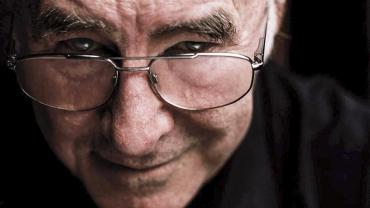Experiential Learning: ‘Market’ value or real value?
The Australian literary figure Clive James, who coined the term Cultural Amnesia, argues that we can forget that some things don’t have a market value, they only have value. And the current Banking Royal Commission is surely resurrecting this crucial point.
I argue that ‘experiential learning’ or learning-in-experience is an educational process that has a value beyond any price the market might put on it.
The educational tradition from which NIODA has evolved is that of experiential learning or, to put it more directly, encouraging students and staff to learn from their own experience, both in the classroom and the workplace, so they may become wiser and more balanced in the accountable exercise of their power and authority.
The current Master program began to take shape in the Graduate Diploma of Organisation Behaviour at Swinburne in 1980 where it grew into the first Master degree offered by the School of Management (1988), then extended into a Professional Doctorate (1996). A shift in SUT’s priorities led to a shift in location to RMIT in 2002 and then to the independent, not-for-profit NIODA (2010). Along the way, the program name changed to Organisation Dynamics to reflect the increasing complexity of workplaces (and their globalising, networked environments) and the unconscious dynamics that are triggered in individuals and groups by increased uncertainty.
We have all changed but we haven’t changed as much as we haven’t changed. If you get my drift.
The difficulty of learning from experience has not changed because human beings will always find it very hard to learn in public and deal with the self-generated feelings of shame and self-judgment at not getting things right. What has changed is the diminished provision of emotional security in organisations that ‘manage by metrics’ and increasingly regard human resources as disposable. This makes it even harder to admit a mistake, even to yourself, and get helpful feedback. We are flooded with information and decision timelines but none of it educates our gut feel nor helps us make critical judgement calls. The ‘market’ prompts us to oscillate regressively between paranoid threats and boundless opportunity rather than struggling purposively with our customers and clients to discover what is actually in their best interests.
The content of the NIODA program continually changes to draw from new theory and techniques but the support for participant learning remains a constant. This support includes discovering the potency of well managed boundaries (time, task, territory and authority) to enable deep learning about how to connect thoughts, feelings and actions in a productive and collaborative manner. It requires both personal courage and staff who en-courage in order to be able to spot the defensive routines in oneself and in the groups we seek to lead.
The outcome is a graduate who can fully take up their role and offer on-task leadership, not just speak the management jargon. Or as Prof Henry Minztberg put it, a person who is an actual manager not just a qualified MBA.
 Dr John Newton
Dr John Newton
Founding director of Master (Org. Behav.) Swinburne 1987
& current Chair, Academic Board of Governance, NIODA
27 June 2018


Hi John – your statement about the diminished level of emotional security in organisations really struck a chord with me. I’m seeing a lot of this lack of psychological safety combined with increasing permeability in the organisations I am working with. This leaves individuals exposed and vulnerable, and with nowhere else to go they feel they have no choice but to either steel themselves for the battle, or withdraw. The capacity to ‘work through’ the challenges seems to almost be the impossible task.
Thank you John, for this very thought-provoking piece. It’s got me thinking about many things: Clive James, “value”, deep experiential learning….but I particularly appreciate your reminder of the the origin of the word “encourage”. It seems we have lightened the meaning of this word considerably in current use. To en-courage someone is very different to simply encouraging him or her.